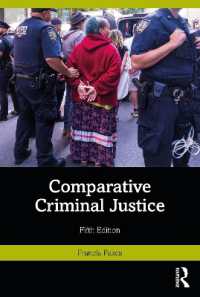Full Description
The international legal framework of human rights presents itself as universal. But rights do not exist as a mere framework; they are enacted, practiced, and debated in local contexts. Rights After Wrongs ethnographically explores the chasm between the ideals and the practice of human rights. Specifically, it shows where the sweeping colonial logics of Western law meets the lived experiences, accumulated histories, and humanitarian debts present in post-colonial Zimbabwe.
Through a comprehensive survey of human rights scholarship, Shannon Morreira explores the ways in which the global framework of human rights is locally interpreted, constituted, and contested in Harare, Zimbabwe, and Musina and Cape Town, South Africa. Presenting the stories of those who lived through the violent struggles of the past decades, Morreira shows how supposedly universal ideals become localized in the context of post-colonial Southern Africa. Rights After Wrongs uncovers the disconnect between the ways human rights appear on paper and the ways in which it is possible for people to use and understand them in everyday life.
Contents
Introduction: The Rise of Rights Talk in Zimbabwe
1. 'Panel-Beating the Law': Constitution Making in Zimbabwe
2. Justice in a Time of Impunity: Remaking Social Worlds after Political Violence
3. Producing Knowledge about Human Rights in Harare
4. Personhood and Rights among Zimbabwean Migrants in South Africa
Conclusion: The Situationality of Human Rights







